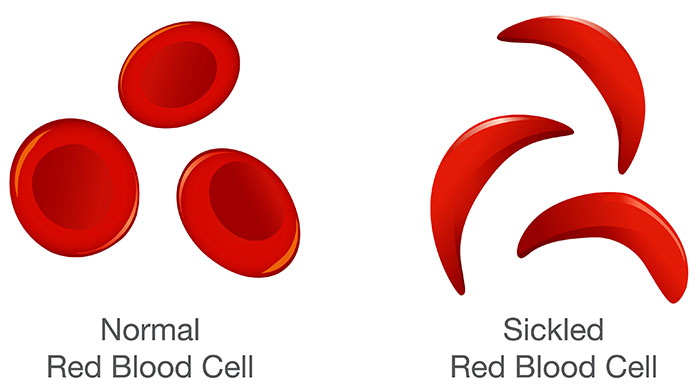Every year, over 150,000 Nigerian children are born into pain, uncertainty, and a life of compromised health. They are not victims of war or famine. They are victims of ignorance, misdiagnosis, weak regulation, and collective indifference. Their condition — Sickle Cell Disease (SCD) — is the most common genetic disorder in Nigeria. Yet, it is also one of the most preventable.
As Nigeria joined the global community to mark World Sickle Cell Day on June 19, fresh data from the Federal Ministry of Health reminded the nation of a painful reality. One in four Nigerian adults carries the sickle cell gene. Approximately eight per cent of infant deaths are linked to SCD complications. The psychosocial, economic, and emotional toll of the disease on families is immense. And while the science of prevention is not new, the culture of ignorance remains stubbornly persistent.
In our view, the tragic rise in sickle cell births is not merely a medical issue. It is a societal failure — one rooted in miseducation, poor regulation, and a dangerous tolerance for quackery in the health sector.
According to the Association of Medical Laboratory Scientists of Nigeria (AMLSN), many genotype tests conducted in the country — including those for couples preparing for marriage — are simply wrong.
The reasons are as frightening as they are preventable: fake reagents, uncalibrated equipment, unqualified personnel, and a lack of regulatory enforcement. Couples are often misinformed about their genetic compatibility, only to discover the truth when their child is born into lifelong suffering.
Let’s be clear: a genotype does not change. A properly conducted genotype test should be a once-in-a-lifetime confirmation. Yet, it is common in Nigeria to see conflicting results from multiple tests, forcing individuals to repeat tests over and over in search of certainty. In most cases, the problem is not the science — it is the system.
The problem is compounded by a culture that excuses negligence. Religious and cultural institutions, which have commendably embraced premarital genotype screening, must also go further in rejecting test results from dubious laboratories. Civil society groups and local authorities must champion awareness campaigns that are not just ceremonial, but strategic, science-based, and relentless.
There is also a deeper issue. In Nigeria, we still do not treat sickle cell disease as a public health emergency. Yet, no fewer than four million Nigerians currently live with the condition. Many suffer silently, with inadequate support systems, poor access to specialised care, and almost non-existent psychological support. Children drop out of school. Adults face workplace discrimination. Entire families live in fear of the next crisis. This is not sustainable.
The state must act — not with tokenism, but with resolve.
The Federal Ministry of Health has reiterated its commitment to improving awareness, early diagnosis, and access to care. That is commendable. But commitments do not heal children. Execution does. It is time for the ministry to move beyond awareness to action — including the aggressive certification and supervision of all genotype-testing laboratories in Nigeria. No one without a license should be allowed to operate a medical laboratory. Period.
The Medical Laboratory Science Council of Nigeria (MLSCN) must live up to its mandate. Reports that the Council declined to respond to media queries without a formal letter — even on a matter of national public health — reflect the culture of bureaucratic aloofness that must change. Nigerians are dying from misdiagnosis, and we must stop treating it like an administrative inconvenience.
State governments, too, have a role to play. Health education in schools must include basic lessons on SCD and the implications of AS/AS pairings. Mass mobilisation at the grassroots must include traditional rulers and faith-based leaders who carry moral authority in communities. Let every church, mosque, and palace be a place of truth — not silence — about the risk of sickle cell.
The National Assembly must revisit and strengthen legislation on genotype screening. Mandatory genotype verification — before the issuance of marriage licenses or the registration of marriage unions — may be controversial, but it is necessary. We must weigh personal liberty against public tragedy.
The media, meanwhile, must not report this issue only on World Sickle Cell Day. The time has come for investigative reporting that exposes the quack laboratories, holds regulators accountable, and gives voice to the families raising children who will never have a chance at a normal life.
It is also worth asking: Where is the investment in local research? With the Nigerian Institute of Medical Research (NIMR) and the Nigerian Institute of Pharmaceutical Research and Development (NIPRD) at our disposal, why is there so little funding for sickle cell research?
Why are donor agencies treating SCD like a side issue while pouring billions into HIV, malaria, and tuberculosis? The global health establishment must correct this imbalance. Sickle cell disease is just as deadly. Just as urgent. Just as deserving.
At the heart of this tragedy is a simple truth: sickle cell disease is preventable. But prevention requires honesty, science, and discipline. It requires a nation that is willing to confront uncomfortable truths — about its healthcare system, its traditions, and its regulatory failures.
It is time we stopped whispering about sickle cell. It is time we said, without fear or evasion, that ignorance is killing our children — and that we all have blood on our hands if we do nothing.











